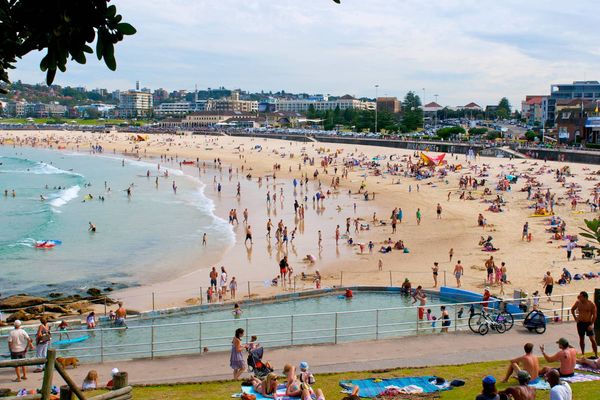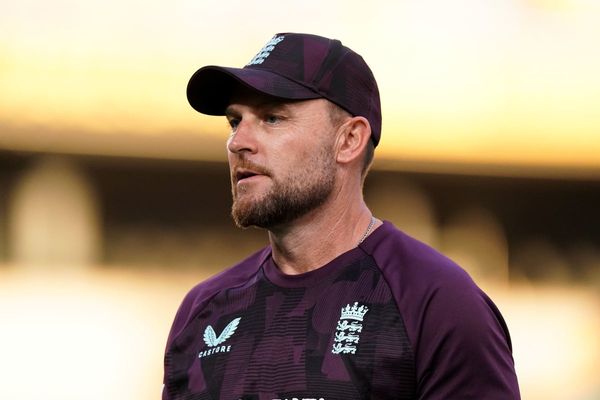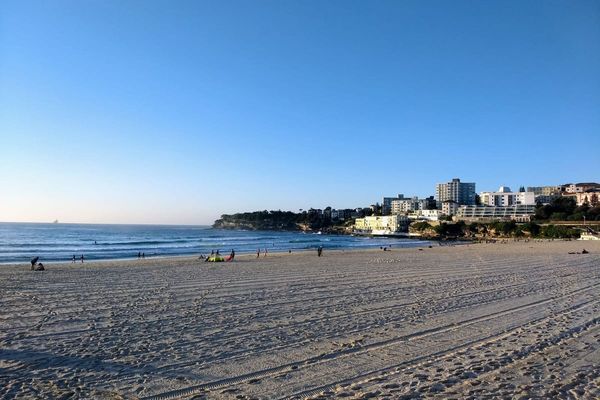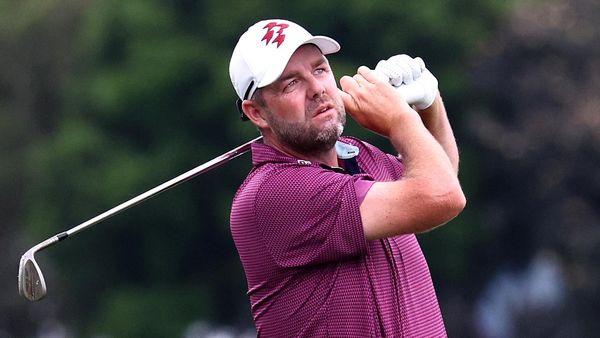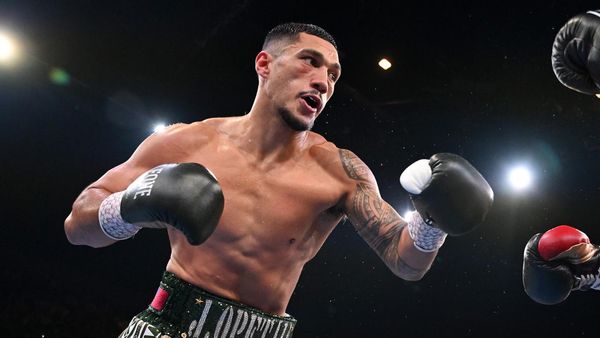
IT’S a phrase that has become among the most iconic in our political discourse. Most attribute its origins to journalist Peter Arnett’s famous Vietnam dispatch for the Associated Press that included the much-misquoted quotation: “It became necessary to destroy the town to save it."
While the original use of the quote is perhaps a little more complex, it still rings true today especially in Ukraine where it would seem to underpin the contorted logic by which Russia goes about its war there.
In a rare “victory”, Russia on Friday claimed to have captured the city of Mariupol after a nearly three-month siege that reduced much of the strategic port city to a smoking ruin, with over 20,000 civilians feared dead.
The last pocket of Ukrainian resistance in the city’s huge Azovstal steel plant with its maze of underground tunnels and galleries constructed during the Soviet era set about evacuating its dead after Kyiv ordered hundreds of its men to surrender to “save lives”.
It was a moment the Kremlin has sought to bring about for some time, but one that didn’t arrive as hoped for on schedule for Russia’s recent May 9 Victory Day celebrations which commemorates the Soviet Union’s defeat of Nazi Germany in the Second World War.
That, however, did not stop Russian Defence Minister Sergei Shoigu milking the surrender at Azovstal for all it was worth and reporting to President Vladimir Putin on the “complete liberation” of the steel works and Mariupol as a whole.
Just what exactly Russia was liberating Mariupol from only those in the Kremlin can fathom. It wasn’t as if the Ukrainians asked them to come, far from it. Every inch of the way they fought the Russian invaders of their country who time and again justified their aggression that they were on a mission of “denazification”.
That among the defenders of Mariupol were members of Ukraine’s Azov Battalion some of whom had links to the far-right is a fact. For a time after its formation there were legitimate concerns over radicalism within the Azov ranks and the far-right elements were distrusted by much of the Ukrainian public as well as by senior figures in the government.
But more recently the ranks of the battalion were drawn from the regular Ukraine-wide pool of military and national guard recruits. The defenders of Mariupol comprised of Ukrainian marines, the border guard, the army and territorial defence units.
This will not stop Moscow from using what they see as a propaganda gift to falsely label many of those who fought in Mariupol as “far-right terrorists” and create a counter narrative to Ukraine’s allegations that many Russian soldiers are war criminals.
Indeed, the first trial of a Russian soldier accused of war crimes took place in Kyiv last week during which Vadim Shysimarin, 21, pleaded guilty to shooting dead an unarmed Ukrainian civilian.
On many levels Russia’s seizure of Mariupol stands as little more than a symbolic “victory” which many military analysts say offers more propaganda value than it does real strategic gain. It will certainly enable Russia to open the Mariupol port to allow supplies and equipment to flow into the city and on to Russian forces in the Donbas, which is now the main focus of Russia’s offensive. But beyond that this is no battlefield game-changer for the Russians.
“Although Putin will squeeze maximum domestic propaganda value out of the capture of Mariupol, it is a pyrrhic victory that comes at enormous cost,” says Robert Person, an associate professor of international relations at the US Military Academy at West Point.
“The protracted fight for the city has drained Russia’s military of significant manpower, weapons, and equipment,” added Person, speaking to broadcaster RFE/RL last week.
Now all eyes turn toward the Donbas region which Ukrainian president Volodymyr Zelenskyy has described as “hell” and “completely destroyed”.
There, villages and towns one after the other are being razed to the ground as Russia continues with its twisted mission to “save” Ukraine by destroying it.

Australia: Morrison exits but Albanese fails to excite the electorate
As I sat down to write this, polling stations in Australia had already been open for hours. With the election on a knife-edge, voters were facing a stark choice for prime minister between the combative conservative incumbent Scott Morrison and opposition Labor Party leader Anthony Albanese.
It’s been a contest that’s been portrayed as one between Morrison who has conceded he had been a “bit of a bulldozer”, after his personality became an electoral liability, and Albanese, who promised a more progressive, pragmatic style based on boosting wages and broadening opportunity. But for many Australians the six-week election campaign has largely been an attritional slog between two uninspiring leaders, with many voters rejecting both major parties and disillusionment expected to reach a record level in the election. According to many political analysts the real question hovering over the election was which major party will best withstand that disillusionment.
Australia’s Roy Morgan pollster has already forecast direct support for both major parties would fall below 40% for the first time since 1906, reflecting a sharp rise in backing for independent parties. Among these are the leftist Greens, on track for their best electoral result, and right-wing parties such as the United Australia party, which has run on a “freedom” campaign to tap into frustration over coronavirus pandemic lockdowns.
Both the Roy Morgan and the Australian Financial Review polls published on Friday showed Albanese leading by a ratio of 53 to 47, sharply down on the previous week, based on the preference voting system where backing for unsuccessful candidates is redistributed until a winner is declared.
Voting is compulsory in Australia and just over 17.2 million people have enrolled to vote, according to the Australian Electoral Commission (AEC).
Record numbers of voters have already cast their ballots at early voting centres or via postal votes, and more than half of the total votes had been cast by Friday evening, according to the commission. Though Albanese emerged on Friday as the favourite, Morrison was in a similar position when he won three years ago in 2019, so Labor could not afford the luxury of complacency. However, Morrison’s concession yesterday ended fears the race could be followed by a hung parliament, which would have made the growing number of independent candidates very important to any bid to form a coalition.
“This is the most unpredictable election ever. It’s like 151 by-elections,” said Nicholas Reece, principal fellow at the Melbourne School of Government told the Financial Times on Friday.
The Australia that went to the polls yesterday is a very different country from the one that voted in a populist wave in 2019 to keep Morrison’s conservative Liberal Party in power. Since then, the country has endured record-setting wildfires and floods, Covid-fuelled isolation and increasing foreign policy challenges from an assertive China.
The cost of living has also become a growing worry as housing prices soar, inflation rises and wages stagnate. Add to this concern among many Australians over climate change and there is much on the minds of voters. Morrison’s exit will be welcomed by many, and not just in Australia. But Albanese is not going to have his problems to seek.

North Korea: Doctrine of ‘self-reliance’ put to the test by Covid outbreak
IT’S a country that has largely created its own isolation. Secretive and authoritarian, it’s only when the leadership of Kim Jong Un allows do we hear much about North Korea. The strategy of cutting itself off has served the regime well, until that is last week when North Korean health authorities admitted their first cases of coronavirus.
Now the Asian nation’s official ideology of self-reliance known as “juche” is being put to the ultimate test.
According to state broadcaster Korean Central Television, as of May 15, there were 240,459 people treated for the “malignant virus” in the capital Pyongyang, accounting for roughly 7% of the city’s population. But since then, wider figures show almost two million cases of Covid-19 across the country of 25 million people have been reported, although only a handful of patients have officially tested positive for coronavirus.
In a country where huge swathes of the population are unvaccinated and susceptible to disease due to chronic malnourishment, and where a dilapidated healthcare system lacks supplies of basic drugs and equipment, it’s hard to overstate the impact the virus will have on North Korea. This though has not stopped the country’s authorities in the capital Pyongyang from steadfastly refusing offers of international assistance.
Both the United States and South Korea have so far not received a response to offers to help tackle the outbreak, including by sending aid, according to South Korean officials. Likewise, the World Health Organisation (WHO), which is “deeply concerned at the risk of further spread”, said North Korea had not responded to requests for information about the outbreak.
As is so often the case, Pyongyang appears to have moved in the direction of China for help. According to local press reports in South Korea, aircraft operated by North Korea’s national carrier this week flew to China to pick up pandemic supplies and deliver them to Pyongyang.
The Chinese foreign ministry said last week that China was “ready to go all-out to provide support and assistance to North Korea in fighting the virus”.
The danger here of course, as the WHO has pointed out, is that apart from the devastating impact it will have on North Koreans themselves an unchecked spread could give rise to deadlier new variants. Kim’s regime it seems is not as isolated or self-reliant as it would like to believe.

Turkey: Erdogan seeks his pound of diplomatic flesh…
IT'S been dubbed a case of “cold Turkey”. Cold that is in terms of President Recep Tayyip Erdogan’s response to the proposal that Sweden and Finland join Nato.
At the core of Erdogan’s objection of course lies Ankara’s anger with Sweden over the latter’s diplomatic dealings with Kurdish groups operating in Turkey and Syria and granting of asylum to members of the Kurdistan Workers’ Party, or PKK, which Turkey along with some other countries view as a terrorist organisation.
As a Nato member, Turkey has the power to veto any new countries seeking to join. Enlargement requires unanimous agreement from all current members. But what we are witnessing here is classic Erdogan. Never one to miss a political opportunity he sees the crisis over Ukraine as the perfect moment to use his leverage to extract further concession from the West. Or, as the Turkish leader himself expressed it last week: “The expansion of Nato is meaningful for us, in proportion to the respect that is shown to our sensitivities.”
Erdogan is a past master at driving hard diplomatic bargains – a political instinct that has kept him in power for decades. But as some analysts, like Asli Aydıntasbas, a senior policy fellow at the European Council on Foreign Relations points out, it’s unlikely that he had one specific policy goal in mind.
“He will no doubt be expecting to be cajoled, persuaded and eventually rewarded for his cooperation, as in the past,” Aydıntasbas told The Spectator magazine last week echoing the views of other experts that Erdogan is simply trying to extract all he can from the crisis. For its part Sweden and Finland have pushed back against Erdogan’s claims that it is soft on terrorism.
In an unusually blunt tweet on Friday, Swedish Foreign Minister Ann Linde rejected the notion.
“Due to the vastly spread disinformation about Sweden and PKK, we would like to recall that the Sweden government of Olof Palme was first after Turkey to list PKK as a terrorist organisation, already in 1984,” Linde wrote, noting that the European Union “followed suit” in 2002. The whole wrangle has ended up a bit of a diplomatic mess, but few doubt that Erdogan will ultimately agree to Nato membership for Finland and Sweden.
It’s just that he will, as always, extract his pound of political flesh first.
